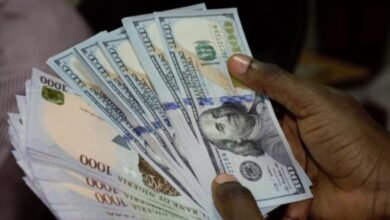Dollar retreats as market braces for US inflation, Fed test

By Samuel Indyk and Brigid Riley
LONDON (Reuters) -The dollar retreated on Wednesday from a four-week high reached the day before as markets awaited key U.S. inflation data, plus the Federal Reserve’s policy decision and updated economic projections later in the day.
The dollar had risen for three straight trading days after Friday’s stronger than expected U.S. jobs report raised the prospect of inflation remaining sticky while growth stays strong, making the U.S. central bank less likely to cut interest rates in the coming months.
Investors will have a chance to assess the inflation situation when U.S. Consumer Price Index numbers are released at 1230 GMT, just hours before the Fed concludes its two-day policy meeting.
Economists polled by Reuters expect headline inflation to have risen 0.1% in May, a slower pace than the 0.3% rise the month before. Core inflation is expected to have risen 0.3% in May from April.
The Fed is widely seen holding rates at 5.25%-5.5%, putting the focus on policymakers’ updated economic projections known as the “dot plot” and Chair Jerome Powell’s news conference for clues regarding the timing and pace of cuts.
“Consensus seems to be that the number of cuts in 2024 will be downgraded from three currently to two” in the latest dot plot, said Kieran Williams, head of Asia FX at InTouch Capital Markets.
Powell is likely to strike a relatively dovish tone, however, given disappointing growth indicators since the last Fed meeting, Williams said.
The dollar index, which measures the greenback against a handful of major peers, slipped to 105.11, after touching its strongest level since May 14 at 105.46 on Tuesday.
“At the last four Fed meetings the dollar has ended lower on the day, largely because Powell has sounded dovish during the press conference,” said ING’s global head of markets Chris Turner.
“I could see a repeat of that today. He’s got a little more ammunition to be dovish today,” Turner added, citing an easing in some activity data, a rise in the unemployment rate and inflation coming closer to target.
The euro was up almost 0.2% at $1.0761 after a recent slide took the single currency to an almost six-week low of $1.07195 on Tuesday.
The currency has been under pressure after far-right parties gained ground in European Parliament elections, prompting French President Emmanuel Macron to call a snap election, to be held in two rounds on June 30 and July 7.
Swirling rumours that Macron could resign if his camp does not win the election were firmly put to bed on Wednesday.
Polls have Marine Le Pen’s far-right National Rally as the most popular party but likely to fall short of an outright majority.
Uncertainty around the election is denting the appeal of the euro, ING’s Turner said.
“I think it’s going to be a long June,” Turner said.
“For today, should the U.S. data or Powell come in on the dovish side, I don’t think euro-dollar will be the best vehicle to play the weaker dollar,” he added.
Sterling was up 0.2% at $1.2764 despite Britain’s economy showing no growth in April in a blow for Prime Minister Rishi Sunak before July’s general election.
BOJ’S BALANCING ACT
The Bank of Japan also meets this week, where it is widely expected to keep interest rates steady and consider whether to offer clearer guidance on how it plans to reduce its huge balance sheet.
“The BOJ will have to walk a tightrope in its policy meeting this week to avoid inadvertently stoking JPY outflows, while also supporting growth and preventing disorderly JGB markets,” said Wei Liang Chang, currency and credit strategist at DBS.
The yen was pinned at 157.35 per dollar, just off the one-week low of 157.40 touched the previous day.
“The hurdle for another upside surprise to U.S. rates and the USD looks quite high though, and we do not expect a retest of the 160 level in USD/JPY,” Chang said.
The yen’s decline to a 34-year low of 160.245 per dollar at the end of April triggered several rounds of official Japanese intervention totalling 9.79 trillion yen ($62.22 billion).
($1 = 157.3500 yen)
(Reporting by Brigid Riley and Samuel Indyk; Editing by Gerry Doyle, Christina Fincher and Mark Potter)
Source link




